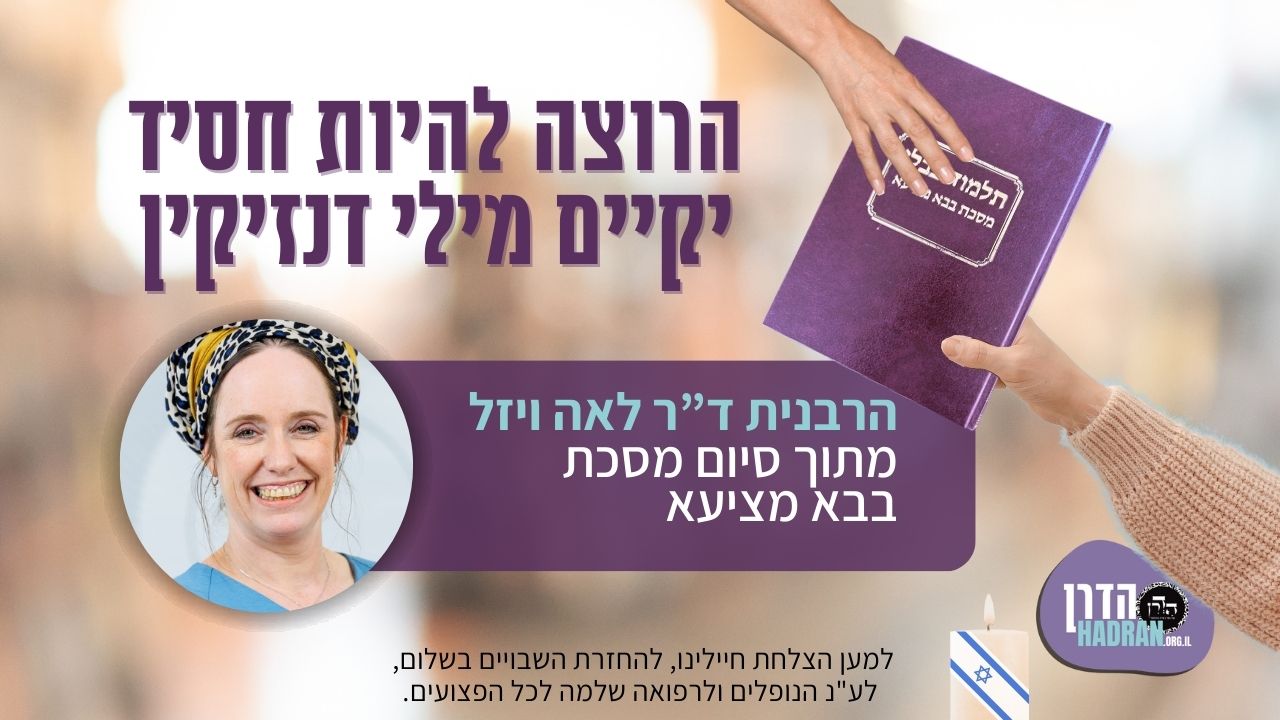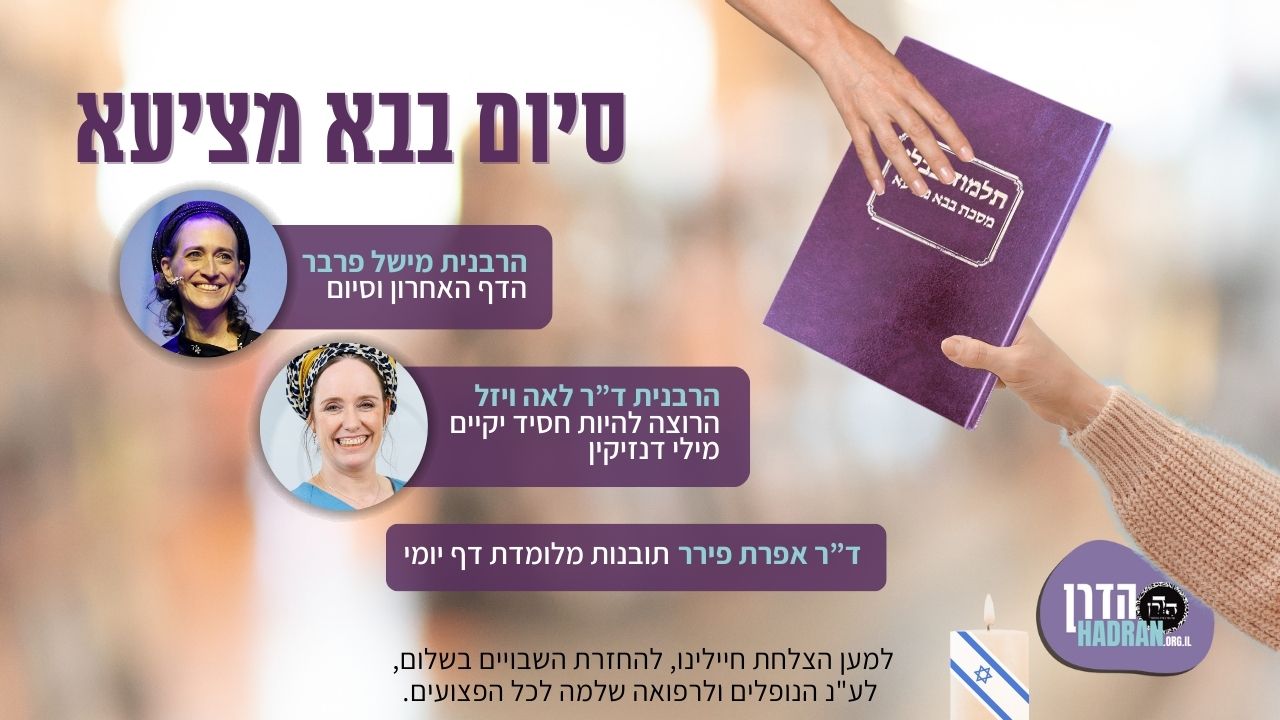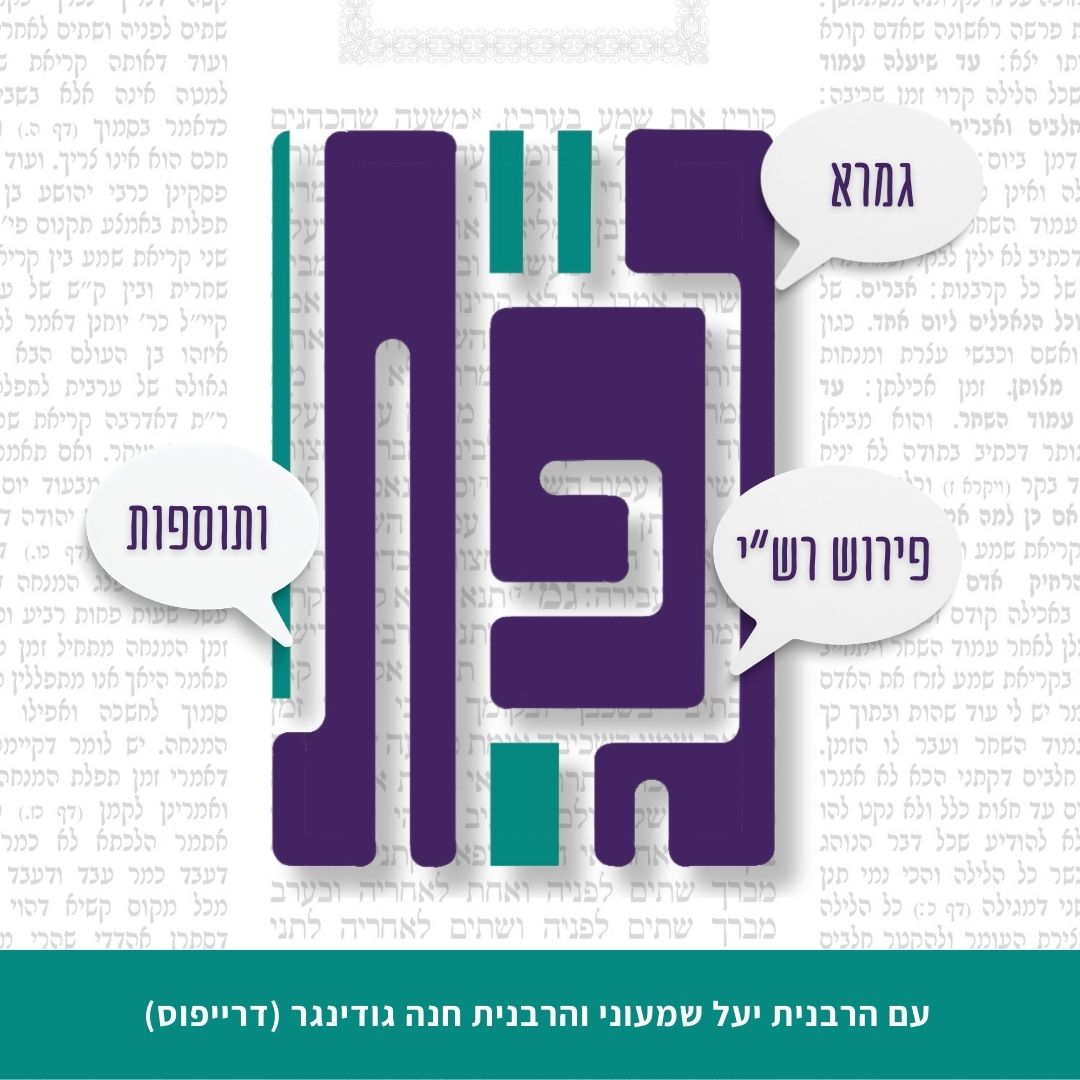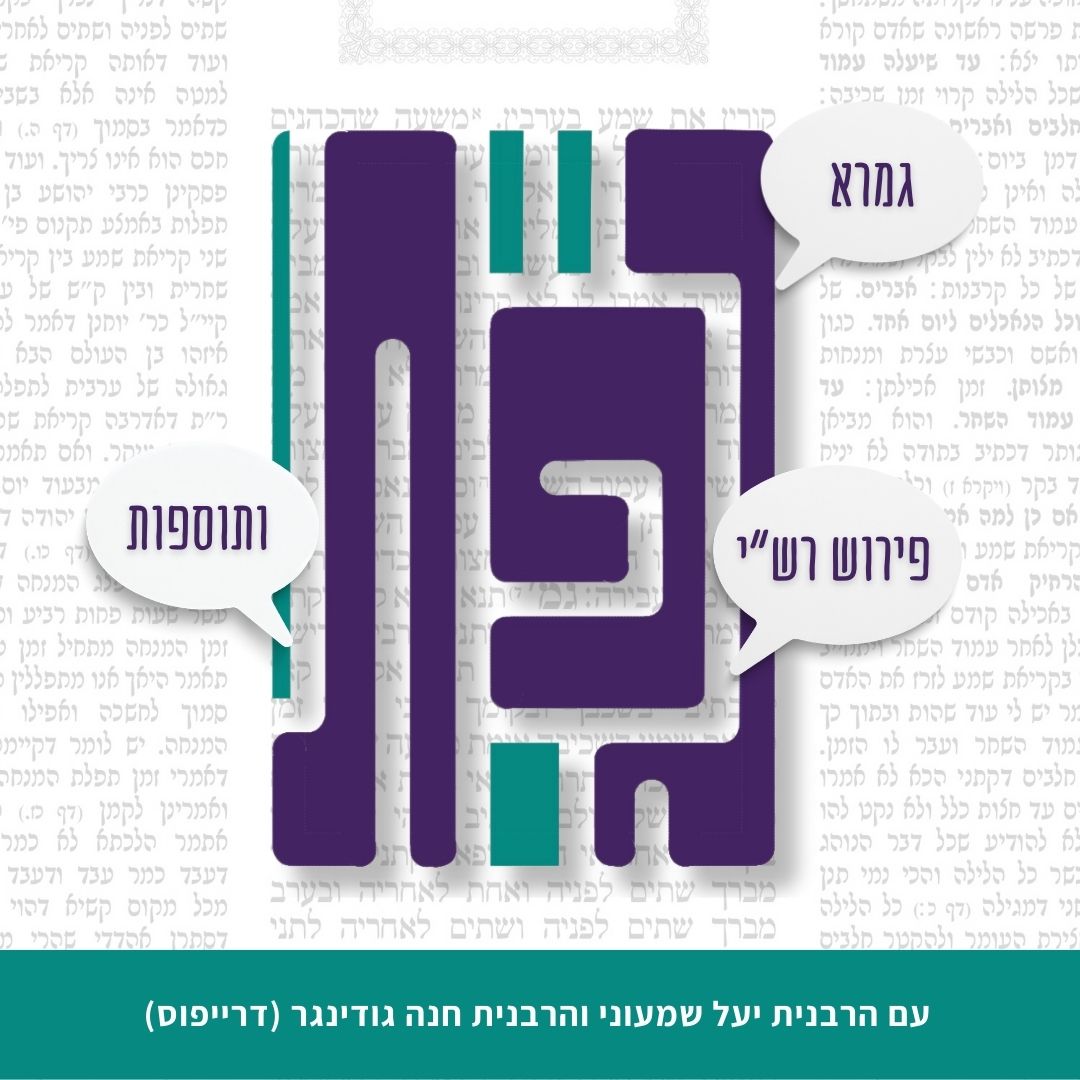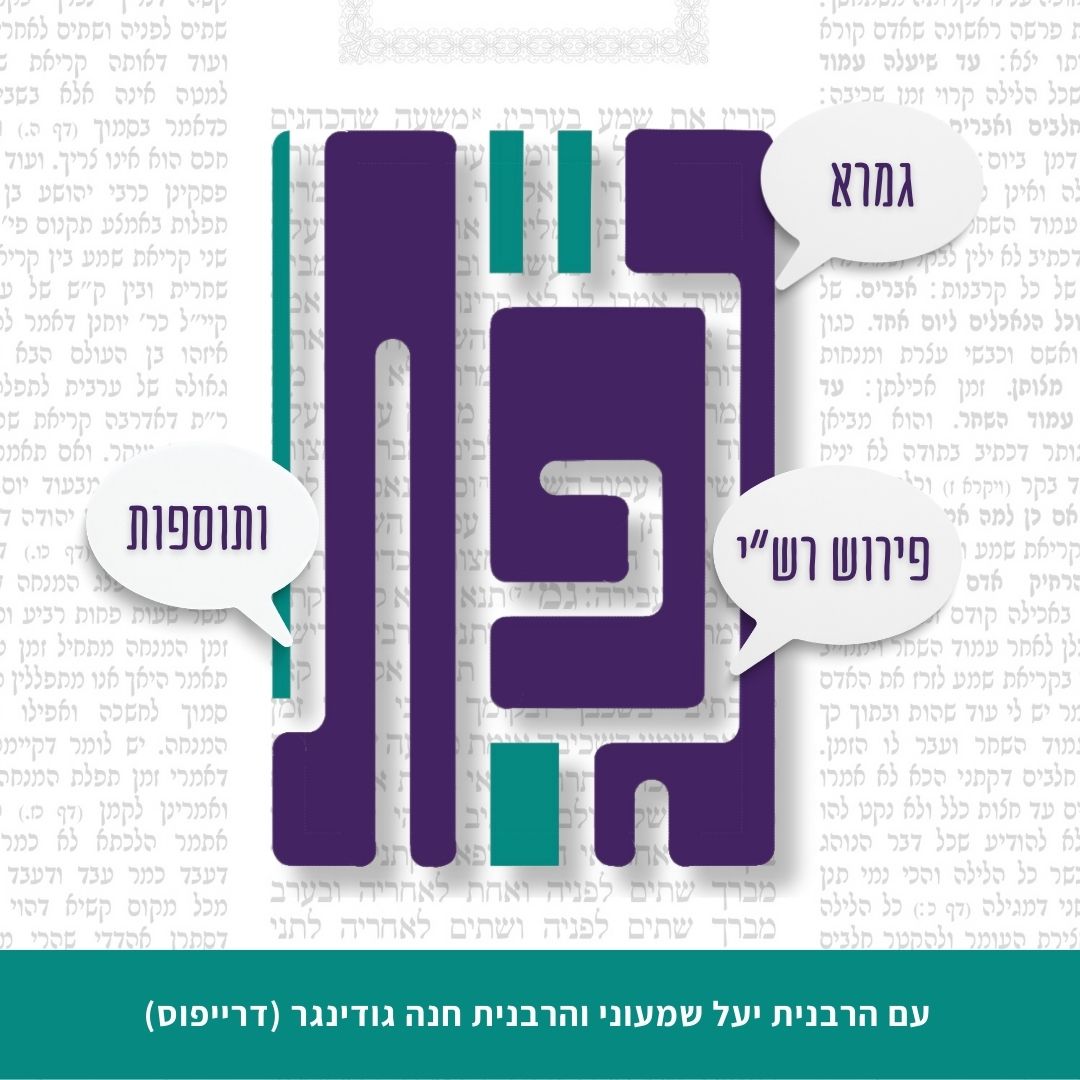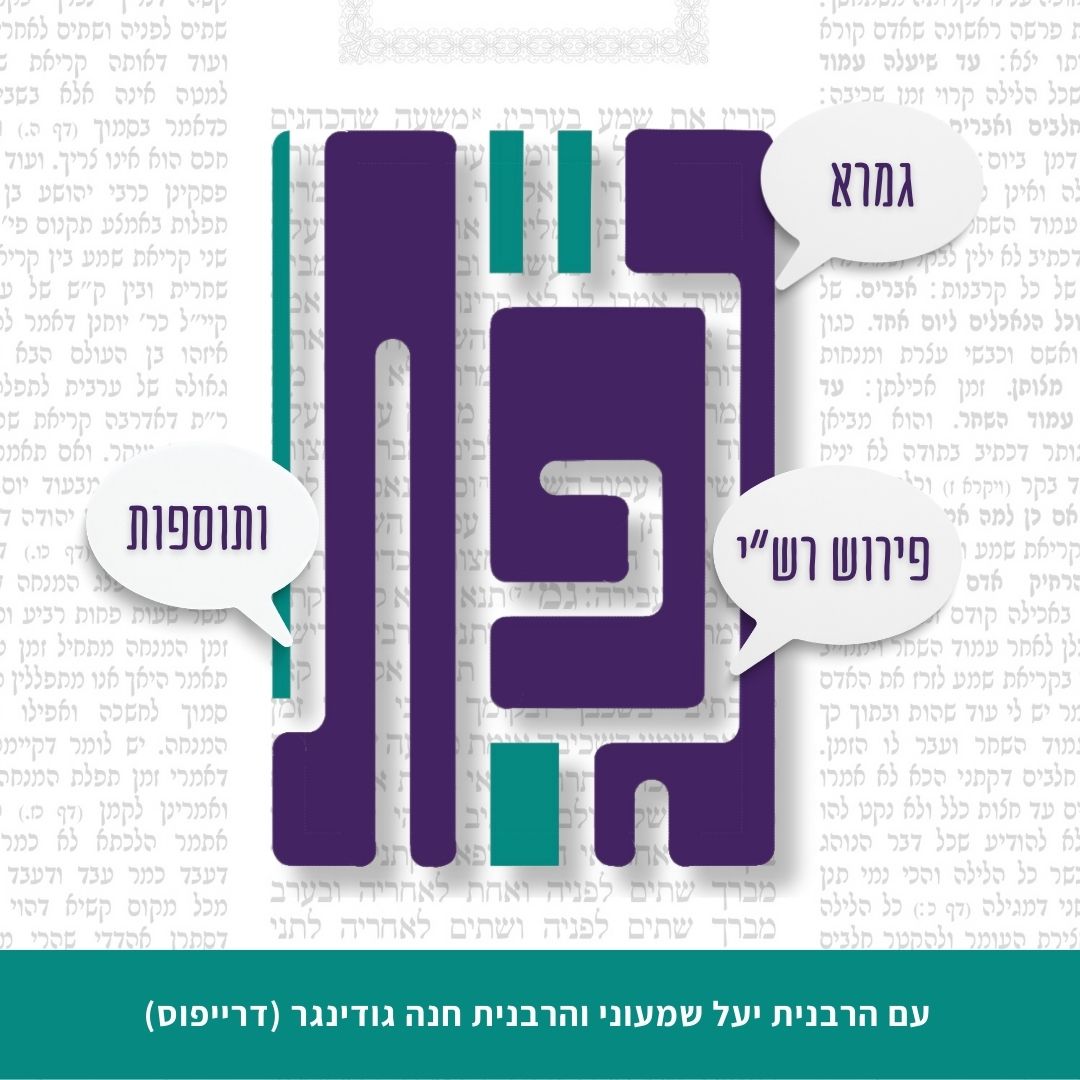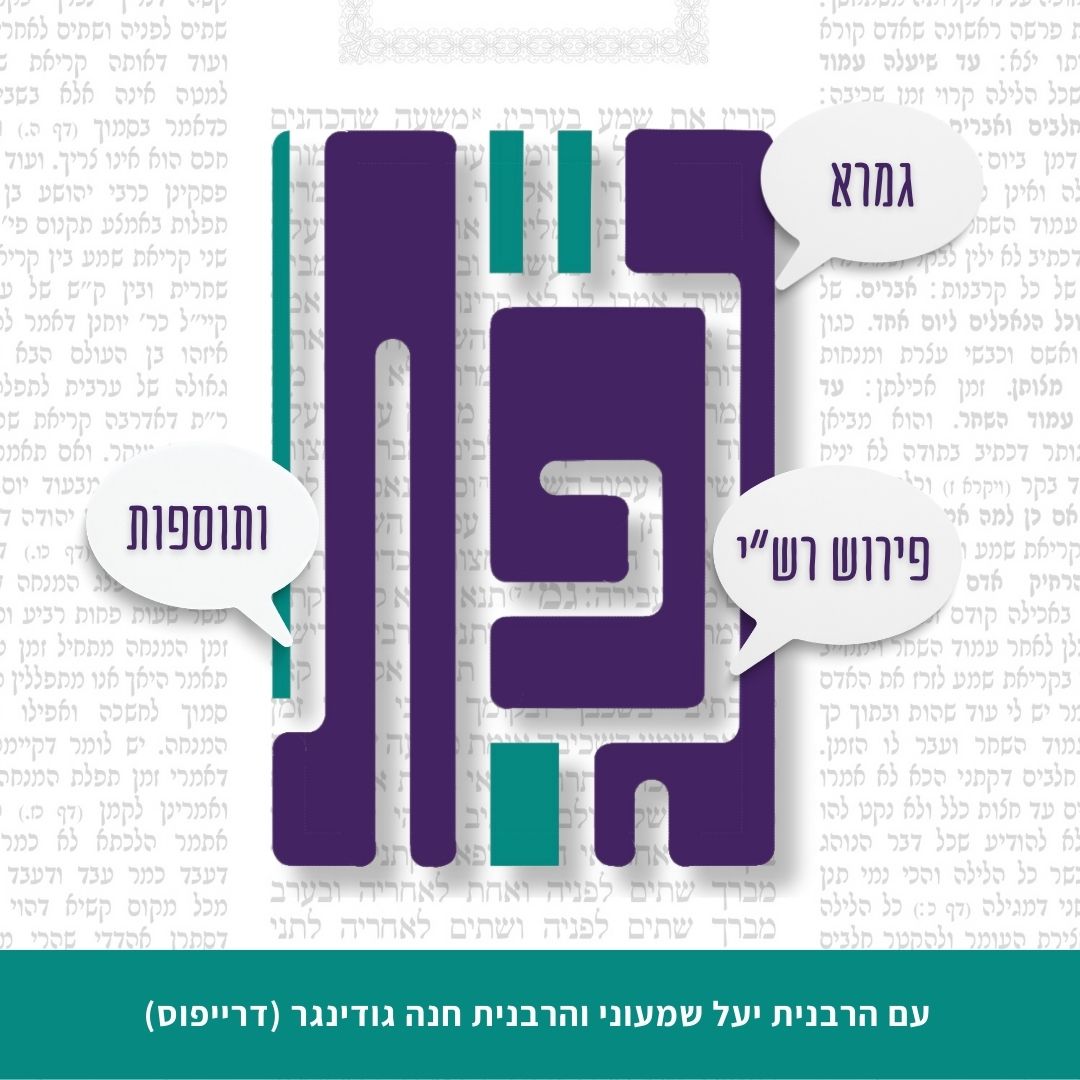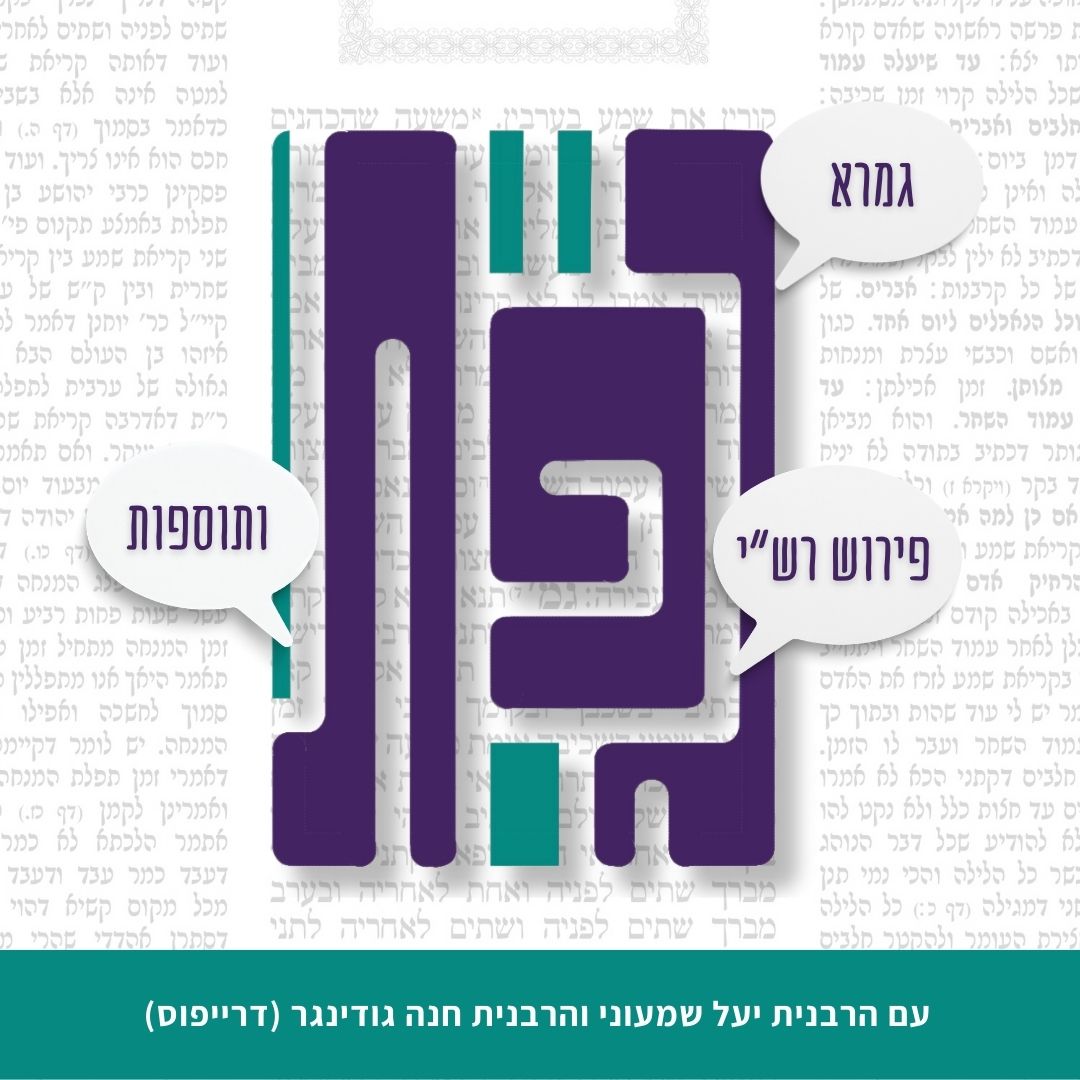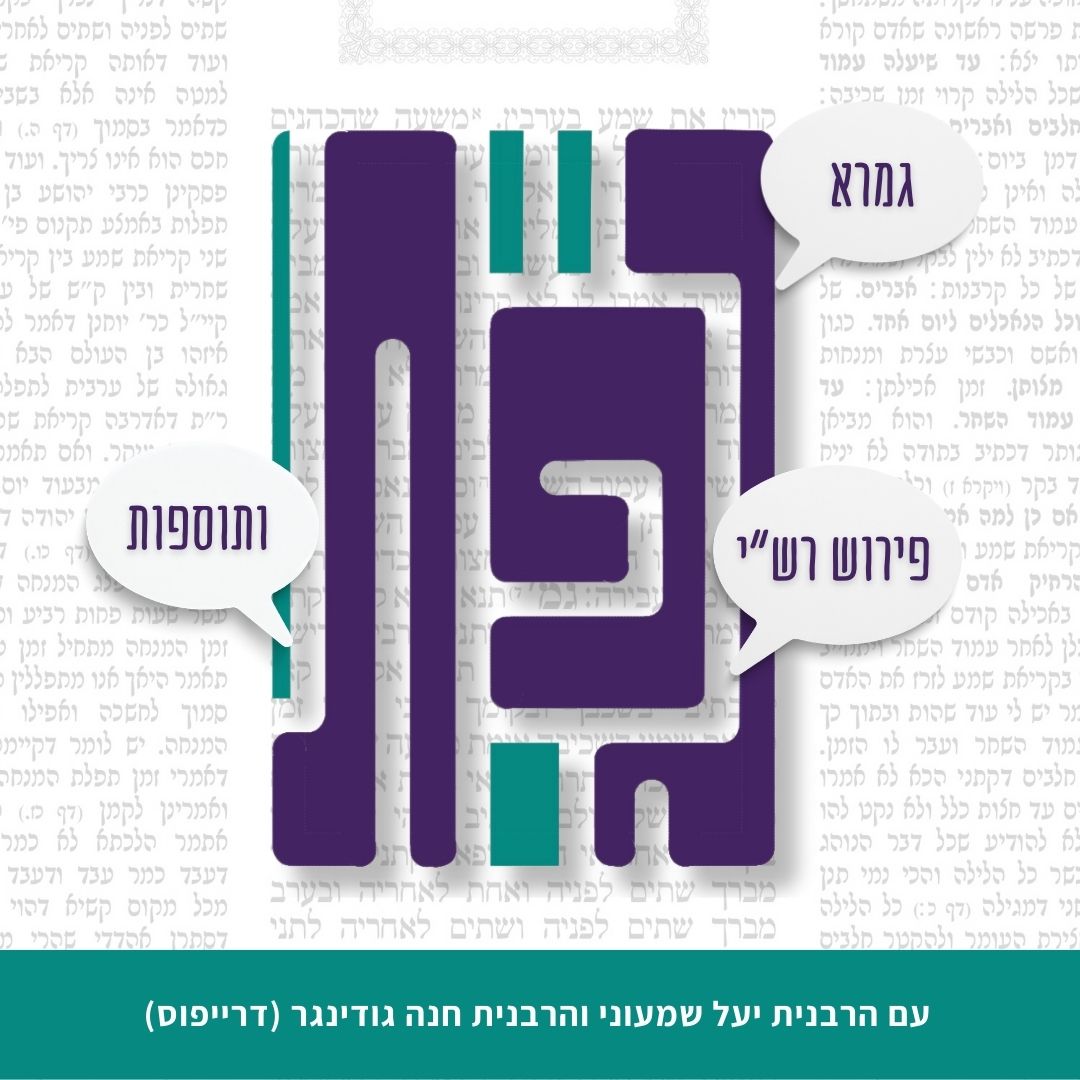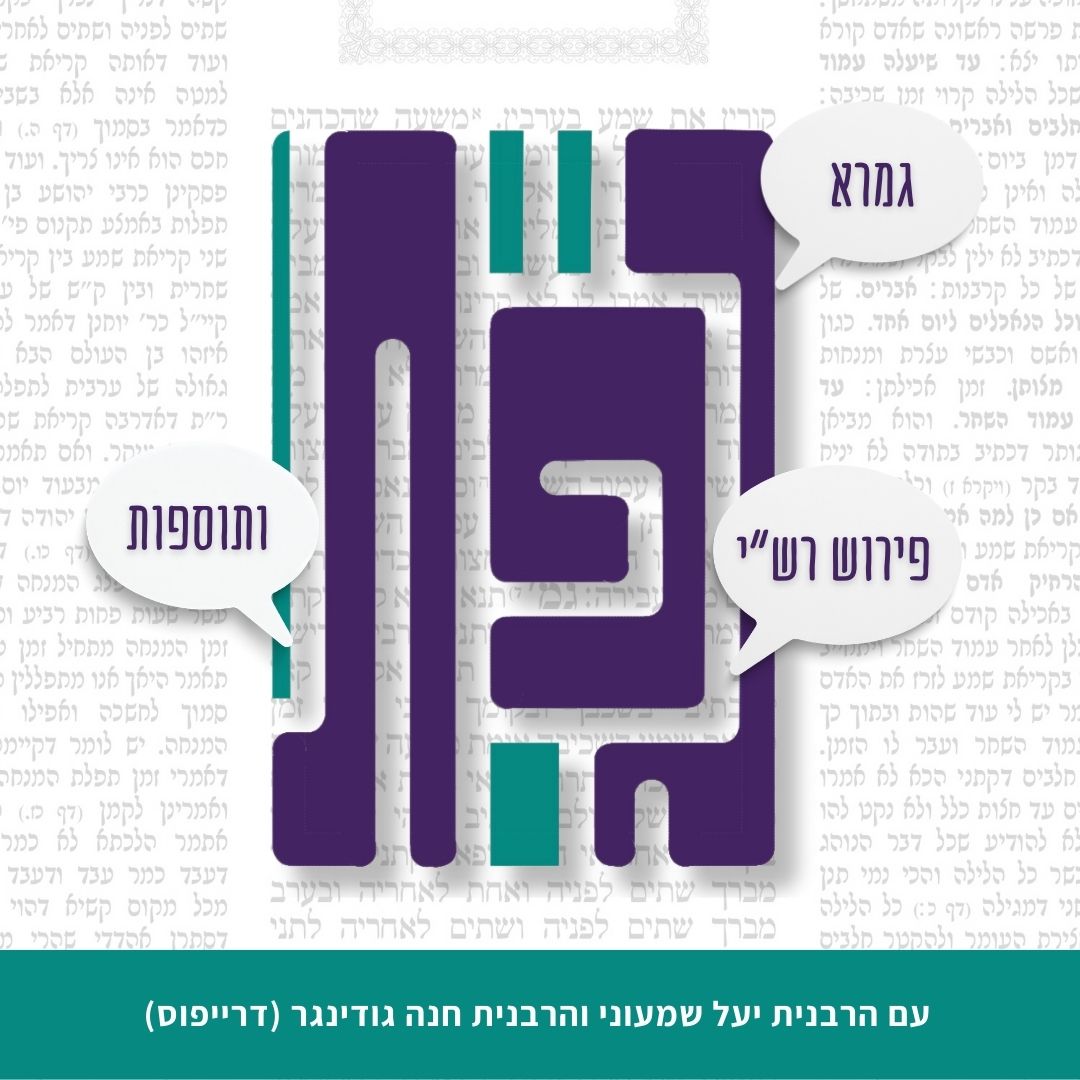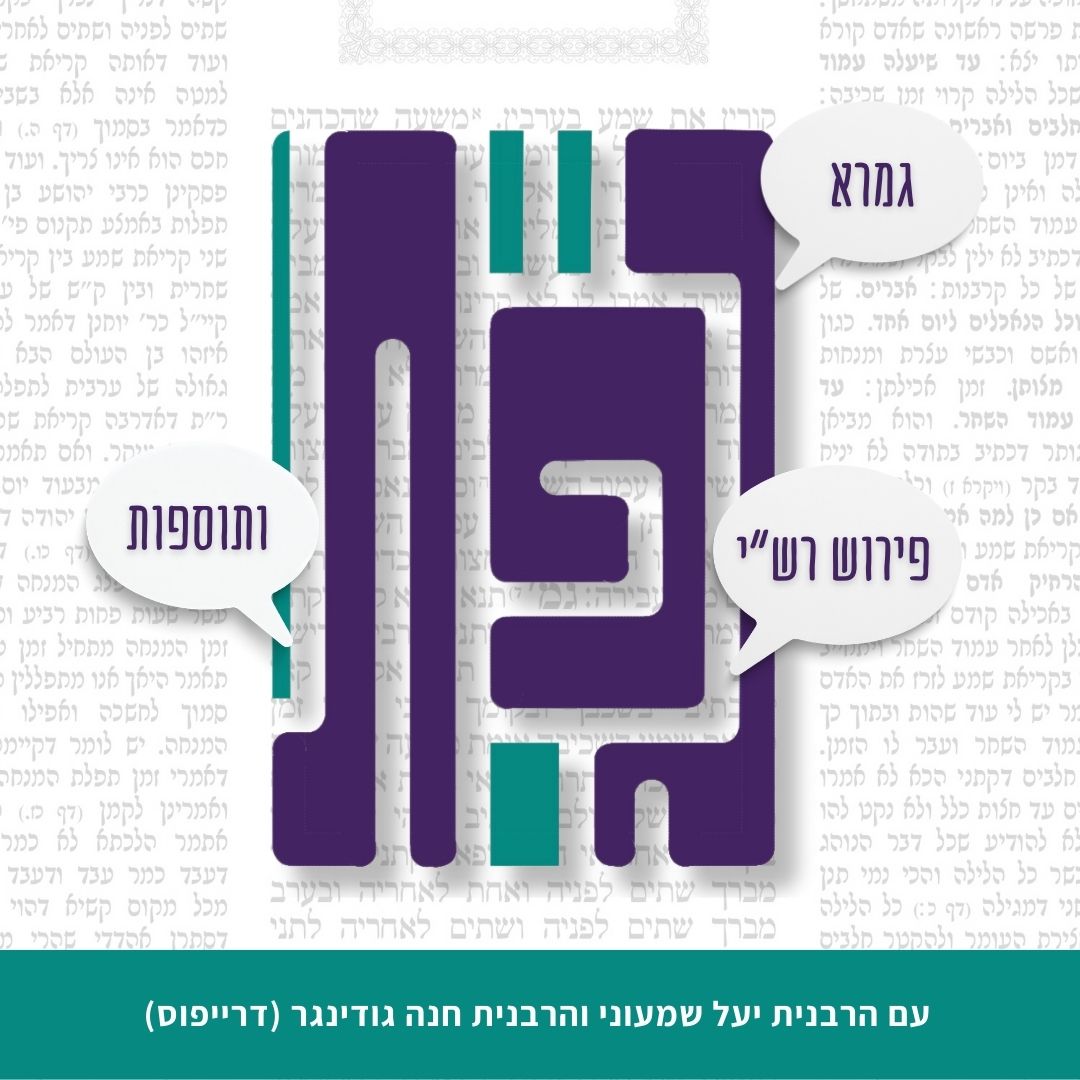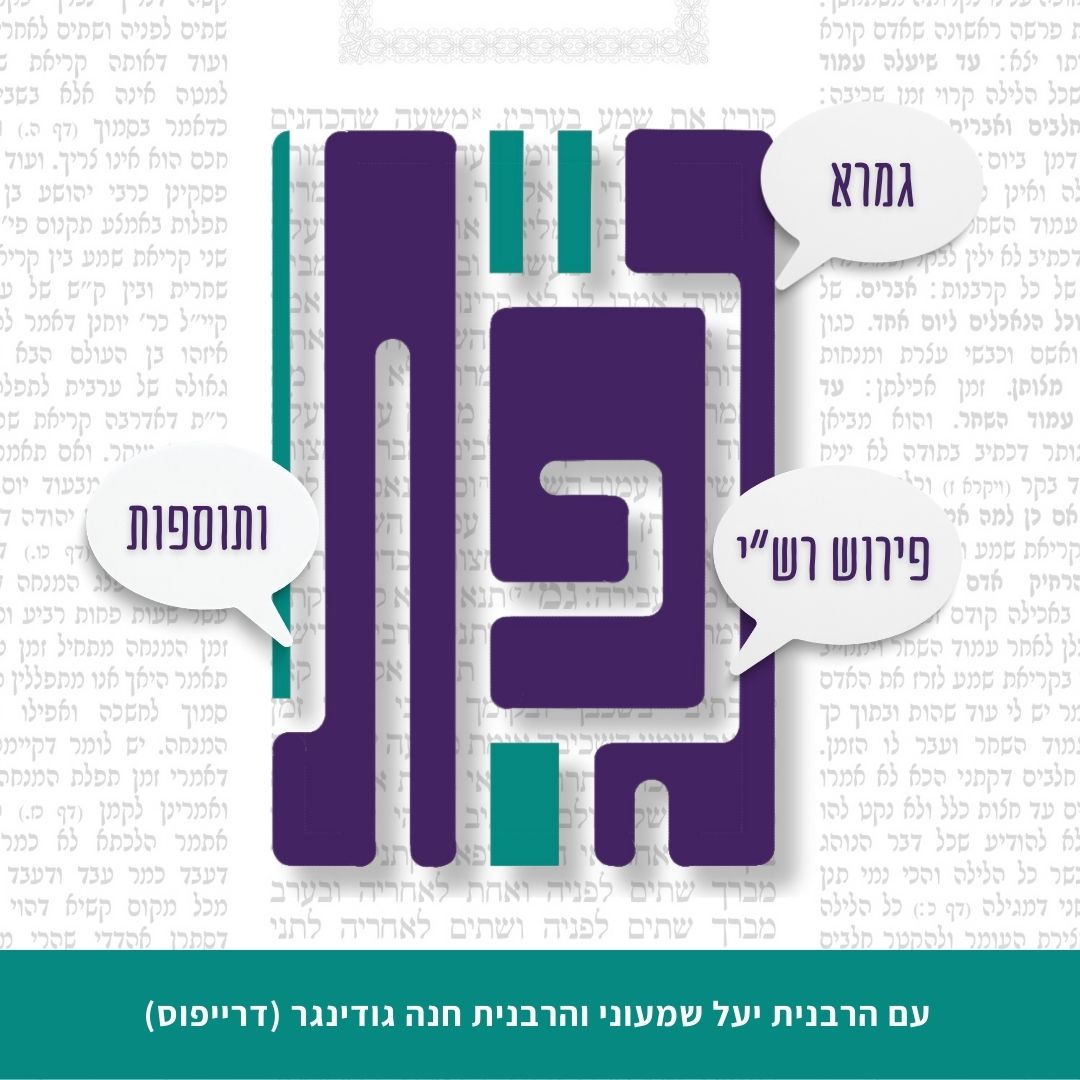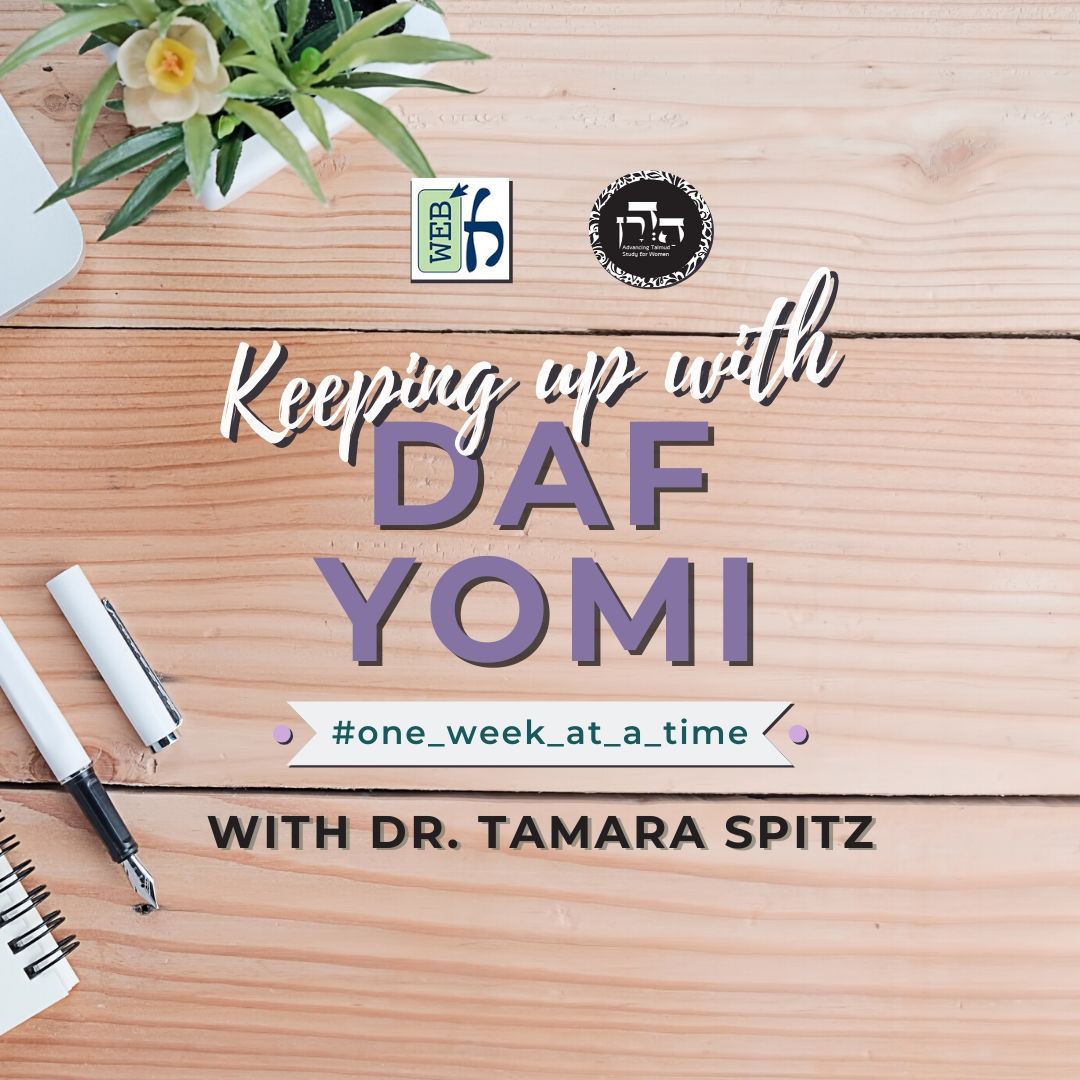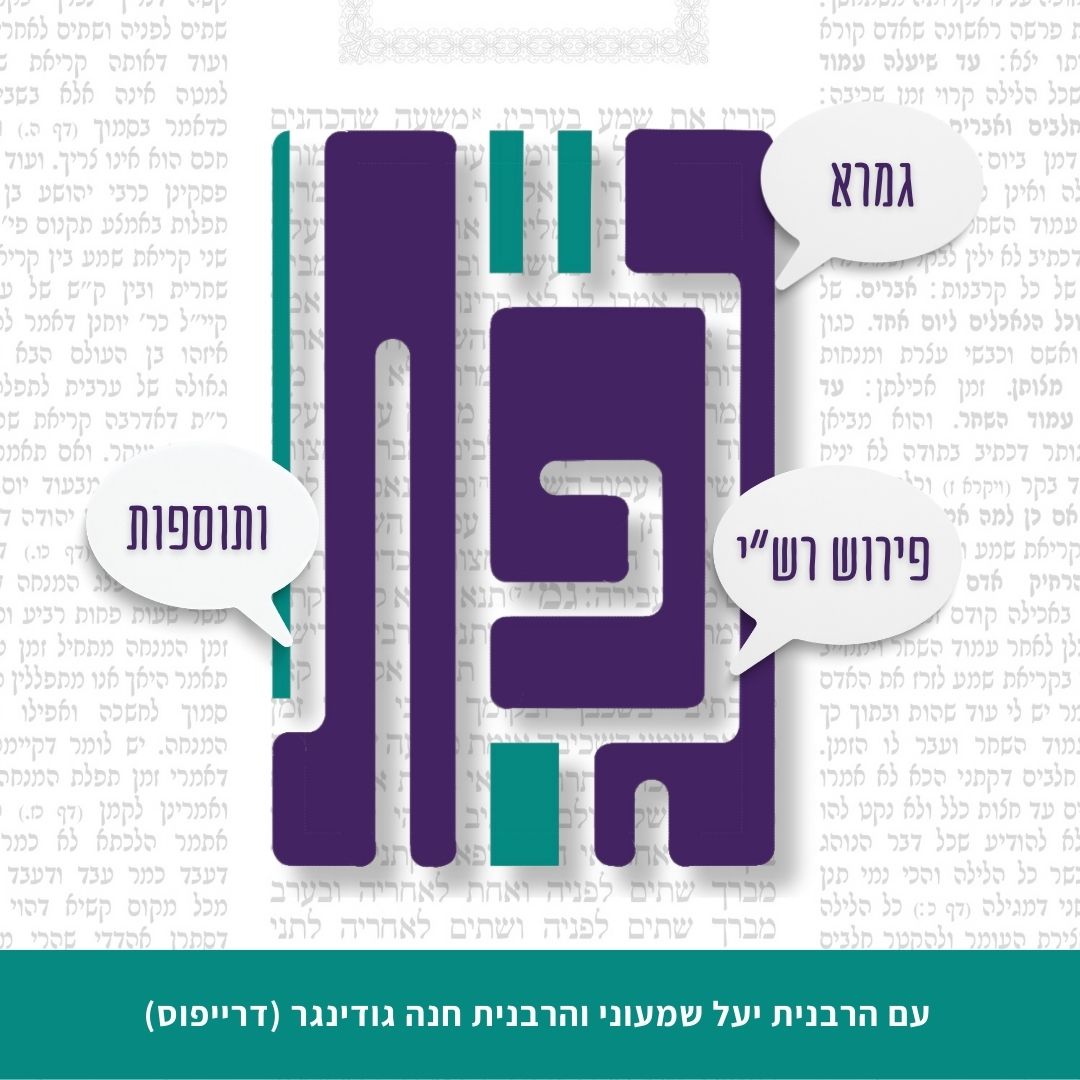בבא מציעא טז
הָא מִית לֵיהּ. וּמַאן דְּאָמַר: נִיחָא לֵיהּ דְּלֵיקוּם בְּהֵמָנוּתֵיהּ – בַּהֲדֵי בְּנֵי נָמֵי נִיחָא לֵיהּ דְּלֵיקוּם בְּהֵמָנוּתֵיהּ.
in this case, since the purchaser already died, the owner is not present to call the seller a robber, so he presumably did not intend to retroactively validate the sale. And conversely, according to the one who says that he bought the land because it is preferable for him to maintain his reliability, it is preferable for him to maintain his reliability with regard to the purchaser’s children too.
סוֹף סוֹף קָרוּ לֵיהּ בְּנֵי לוֹקֵחַ ״גַּזְלָנָא״!
The Gemara challenges this distinction: Ultimately, the purchaser’s children will also call the seller a robber if the field is appropriated from them. Therefore, there is no difference between the two explanations of Rav’s ruling in a case where the purchaser has died.
אֶלָּא: אִיכָּא בֵּינַיְיהוּ דְּמִית גַּזְלָן. מַאן דְּאָמַר נִיחָא לֵיהּ לְאִינִישׁ דְּלָא לִקְרְיוּהּו ״גַּזְלָן״, הָא מִית לֵיהּ. לְמַאן דְּאָמַר נִיחָא לֵיהּ דְּלֵיקוּם בְּהֵמָנוּתֵיהּ, הָכִי נָמֵי אַף עַל גַּב דְּמִית – נִיחָא לֵיהּ דְּלֵיקוּם בְּהֵמָנוּתֵיהּ!
Rather, the practical difference between them is in a case where the robber himself died, and his children subsequently bought the field from its owner. According to the one who says that the motivation is that it is preferable for a person not to be called a robber, he already died and this motive is not applicable. While according to the one who says that his motivation is that it is preferable for him to maintain his reliability, in this case also, even though the robber died, it is still preferable for him to maintain his reliability, i.e., one is concerned about the reputation he will have after his death, not only while he is alive.
סוֹף סוֹף קָרוּ לִבְנֵיהּ: ״בְּנֵי גַּזְלָנָא״.
The Gemara rejects this distinction as well: Ultimately, if the sale is revoked after his death, people will call his children the children of a robber. Just as one does not want to be called a robber during his lifetime, one presumably does not want his children to be called the children of a robber after his death.
אֶלָּא אִיכָּא בֵּינַיְיהוּ דְּיַהֲבַהּ בְּמַתָּנָה. מַאן דְּאָמַר נִיחָא לֵיהּ דְּלֵיקוּם בְּהֵמָנוּתֵיהּ – מַתָּנָה נָמֵי נִיחָא לֵיהּ דְּלֵיקוּם בְּהֵמָנוּתֵיהּ. מַאן דְּאָמַר נִיחָא לֵיהּ דְּלָא נִקְרְיוּהּו ״גַּזְלָנָא״ – אָמַר לֵיהּ: מַאי גְּזַלִי מִינָּךְ.
Rather, the practical difference between them is in a case where the robber gave the land to the recipient as a gift rather than selling it. According to the one who says that it is preferable for him to maintain his reliability, in the case of a gift also, it is preferable for him to maintain his reliability. While according to the one who says that the motivation is that it is preferable for him not to be called a robber, in this case the robber could say to the recipient of the gift: What did I rob you of? You incurred no loss.
פְּשִׁיטָא: זַבְּנַהּ, אוֹרְתַהּ, וְיַהֲבַהּ בְּמַתָּנָה – לָאו לְאוֹקֹמַהּ קַמֵּי לוֹקֵחַ קָא בָּעֵי.
§ The Gemara discusses various scenarios relating to the halakha of one who sold stolen land and then acquired it from the robbery victim. It is obvious that if, after selling the stolen land, the robber sold it again to another person, or bequeathed it, or gave it as a gift, it is clear that the robber does not want to establish it before, i.e., transfer ownership of it to, the original buyer. Therefore, the robber’s purchase of the land from the robbery victim is not assumed to be for the purpose of validating the original sale. The buyer can demand compensation from the robber for the invalid sale, but the land remains in the possession of the second buyer or the recipient of the gift or the inheritance.
נְפַלָה לֵיהּ בִּירוּשָׁה, יְרוּשָּׁה מִמֵּילָא הִיא, וְלָאו אִיהוּ קָא טָרַח אַבָּתְרַהּ.
Likewise, it is clear that if the land that he stole and then sold later came into his possession not by purchase but as an inheritance, the buyer does not have the rights to it, as an inheritance is acquired passively, and the robber did not make an effort to acquire it. Here too, the buyer can claim only compensation and not the land itself.
גַּבְיַ[הּ] (אִיהוּ) בְּחוֹבוֹ, חָזֵינַן אִי אִית לֵיהּ אַרְעָא אַחֲרִיתִי וַאֲמַר: הַאי בָּעֵינָא, לְאוֹקֹמַהּ קַמֵּיהּ לוֹקֵחַ קָא בָּעֵי.
If the robber collected the land that he had sold as payment for a debt owed to him by the robbery victim, we need to see the circumstances. If the robbery victim has other land from which the robber could have collected the debt, and nevertheless the robber said: I want to collect this land, apparently the robber wanted to establish it before the buyer and validate the sale.
וְאִי לָא, זוּזֵי הוּא דְּבָעֵי אִפְּרוֹעֵי.
And if the robbery victim does not have other land, and the robber had no choice as to which land to collect, there is no reason to assume that the robber was attempting to validate the sale. He merely wanted to be paid money for his debt, and not to secure the land for the buyer.
יַהֲבַהּ נִהֲלֵיהּ בְּמַתָּנָה, פְּלִיגִי בַּהּ רַב אַחָא וְרָבִינָא. חַד אָמַר: מַתָּנָה כִּירוּשָּׁה, דְּהָא מִמֵּילָא. וְחַד אָמַר: מַתָּנָה כְּמֶכֶר, דְּאִי לָאו דְּטָרַח וְאַרְצִי קַמֵּיהּ לָא הָוֵי יָהֵיב לֵיהּ מַתָּנָה, לְהָכִי טְרַח וְאַרְצִי קַמֵּיהּ, כִּי הֵיכִי דְּלֵיקוּם בְּהֵמָנוּתֵיהּ.
With regard to a case where the robbery victim gave the land as a gift to the robber, Rav Aḥa and Ravina disagree. One says that a gift has the same status as an inheritance, as it is also acquired passively, and one says that a gift has the same status as a sale. This is because were it not for the fact that the robber took the trouble to ingratiate himself with the owner, he would not have given it to him as a gift. It is clearly for this reason that the robber took the trouble to ingratiate himself with him, i.e., in order to validate the sale and thereby maintain his reliability.
וְעַד אֵימַת נִיחָא לֵיהּ דְּלֵיקוּם בְּהֵמָנוּתֵיהּ? אָמַר רַב הוּנָא: עַד שְׁעַת הַעֲמָדָה בַּדִּין.
The Gemara asks: And until when can it be assumed that the robber bought the land because it is preferable for him to maintain his reliability? Rav Huna says: Until the time of standing trial. Once the purchaser takes the robber to court, it is too late for the robber to protect his reputation, as the purchaser has demonstrated that he does not consider the robber to be trustworthy.
חִיָּיא בַּר רַב אָמַר: עַד דְּמָטְ[יָ]א אַדְרַכְתָּא לִידֵיהּ. רַב פָּפָּא אָמַר: עַד דְּמַתְחֲלִן יוֹמֵי אַכְרַזְתָּא.
Ḥiyya bar Rav says that the robber would still buy the land from the owner in order to maintain his reliability up until the time that a document of authorization by the court to locate and seize property from the robber comes into the purchaser’s possession. It is only once the robber avoids immediately reimbursing the purchaser and the court is compelled to authorize the purchaser to appropriate the robber’s property that the robber’s reliability is no longer a factor. Rav Pappa says that the robber’s reliability remains a motive to acquire the field until the days of announcement begin. During the days of announcement the court assesses the value of the robber’s property in order to compensate the purchaser.
מַתְקֵיף לַהּ רָמֵי בַּר חָמָא: מִכְּדִי הַאי לוֹקֵחַ בְּמַאי קָנֵי לְהַאי אַרְעָא – בְּהַאי שְׁטָרָא, הַאי שְׁטָרָא חַסְפָּא בְּעָלְמָא הוּא!
§ Rami bar Ḥama objects to Rav’s statement, the focal point of this discussion, that the robber transfers to the buyer any rights to the land that he might acquire; after all, by means of what mode of acquisition does this purchaser acquire this land? It is by means of this deed of sale that the robber gave him. The purchase is invalid, as this document is merely a shard, since the robber did not own, at the time of the sale, the land he purported to sell.
אֲמַר לֵיהּ רָבָא: תְּהֵא בְּמַאֲמִינוֹ, בְּהָהִיא הֲנָאָה דְּלָא קָאָמַר לֵיהּ מִידֵּי וְקָא סָמֵיךְ עֲלֵיהּ טָרַח וּמַיְיתֵי לֵיהּ, גָּמַר וּמַקְנֵי לֵיהּ.
Rava said to him in response: Let Rav’s statement be understood as applying to a case where the buyer said to the robber that he trusts him to resolve the legal issue. By virtue of that satisfaction that the robber received from the buyer’s not having said anything to him to question his rights to the land, but rather having relied on him, the robber therefore takes the trouble and brings to him the opportunity to purchase the land and resolves to transfer the land’s ownership to him.
מֵתִיב רַב שֵׁשֶׁת: מַה שֶּׁאִירַשׁ מֵאַבָּא מָכוּר לָךְ, מַה שֶּׁתַּעֲלֶה מְצוּדָתִי מָכוּר לָךְ – לֹא אָמַר כְּלוּם. מַה שֶּׁאִירַשׁ מִן אַבָּא הַיּוֹם מָכוּר לָךְ, מַה שֶּׁתַּעֲלֶה מְצוּדָתִי הַיּוֹם מָכוּר לָךְ – דְּבָרָיו קַיָּימִין!
Rav Sheshet raises an objection to Rav’s statement from a baraita that states that if one says: That which I will inherit from my father is hereby sold to you, or: That which my net will catch is sold to you, he has said nothing, as one cannot sell that which he does not yet own. But if one says: That which I will inherit from my father today is hereby sold to you, or: That which my net will catch today is sold to you, his statement stands. The first halakha of the baraita indicates that one cannot sell that which he does not yet own, which contradicts Rav’s ruling.
אָמַר רָמֵי בַּר חָמָא: הָא גַּבְרָא וְהָא תְּיוּבְתָּא!
Rami bar Ḥama said about this objection: This is the great man and this is his refutation of Rav’s opinion; i.e., this refutation is compelling.
אָמַר רָבָא: גַּבְרָא קָא חָזֵינָא, וּתְיוּבְתָּא לָא קָא חָזֵינָא. הָכָא סָמְכָא דַּעְתֵּיהּ, וְהָכָא לָא סָמְכָא דַּעְתֵּיהּ. הָכָא סָמְכָא דַּעְתֵּיהּ – דְּאָזֵיל טָרַח וּמַיְיתֵי לֵיהּ כִּי הֵיכִי, דְּלָא נִקְרְיֵיהּ ״גַּזְלָנָא״. הָכָא לָא סָמְכָא דַּעְתֵּיהּ.
Rava said in response: I see that he is a great man, but I do not see the conclusive refutation. Here, in the case of validating a sale, the purchaser relies on the seller and is confident he will acquire the land; but there, in the case of the baraita, the purchaser does not fully rely on the seller. The Gemara explains: Here, in the case of validating the sale, the purchaser relies on the seller to go take the trouble and provide him with the land so that he will not be called a robber. Whereas there, in the case of the baraita, the purchaser does not fully rely on the seller, as it is uncertain whether the seller will actually inherit his father’s property or catch anything with his net.
שַׁלְחוּהָ לְקַמֵּיהּ דְּרַבִּי אַבָּא בַּר זַבְדָּא. אֲמַר לְהוּ: זוֹ אֵינָהּ צְרִיכָה לִפְנִים. אָמַר רָבָא: זוֹ צְרִיכָה לִפְנִים וְלִפְנַי לִפְנִים. הָכָא סָמְכָא דַּעְתֵּיהּ, וְהָכָא לָא סָמְכָא דַּעְתֵּיהּ.
The Gemara relates that the Sages sent Rav Sheshet’s objection and presented it before Rabbi Abba bar Zavda for his evaluation. Rabbi Abba bar Zavda said to them: This objection need not be introduced inside the study hall for further clarification, as it is clear and compelling. Rava disagreed and said: This objection needs to be brought inside the study hall and inside the innermost area of the study hall. In other words, it should be examined carefully, as it is not compelling. This is because here, the purchaser relies on the seller, whereas there, in the case of the baraita, the purchaser does not fully rely on the seller.
הֲוָה עוֹבָדָא בְּפוּמְבְּדִיתָא וְאוֹתְבֵיהּ. אֲמַר לְהוּ רַב יוֹסֵף: זוֹ אֵינָהּ צְרִיכָה לְפָנִים. וַאֲמַר לֵיהּ אַבָּיֵי: צְרִיכָה לִפְנִים וְלִפְנַי לִפְנִים, הָכָא סָמְכָא דַּעְתֵּיהּ, הָכָא לָא סָמְכָא דַּעְתֵּיהּ.
There was an incident in Pumbedita where the court ruled in accordance with the opinion of Rav, and the Sages refuted the ruling based on the baraita cited earlier. Rav Yosef said to them: This objection need not be introduced inside the study hall for further clarification, as the objection is clear and compelling. And Abaye said to him: It needs to be brought inside the study hall and inside the innermost area of the study hall, as here the purchaser relies on the seller, whereas there the purchaser does not fully rely on the seller.
וּמַאי שְׁנָא רֵישָׁא וּמַאי שְׁנָא סֵיפָא? אָמַר רַבִּי יוֹחָנָן: סֵיפָא ״מַה שֶּׁאִירַשׁ מֵאַבָּא הַיּוֹם״ – מִשּׁוּם כְּבוֹד אָבִיו. ״מַה שֶּׁתַּעֲלֶה מְצוּדָתִי הַיּוֹם״ –
The Gemara asks concerning the baraita cited earlier: And what is different in the first clause, where the sale is not valid, and what is different in the latter clause, where the sale is valid? In both cases, the seller does not yet own the merchandise. Rabbi Yoḥanan said: In the latter clause, when the seller states: I am selling that which I will inherit from my father today, he does so for the honor of his father. He believes that his father will die that day, and his intention is to raise money for the burial. Consequently, the Sages instituted an ordinance that the sale is valid. Similarly, in the case of a person who says: That which my net will catch today is sold to you,
מִשּׁוּם כְּדֵי חַיָּיו.
the Sages instituted an ordinance that the sale is effective because of their concern for his immediate livelihood.
אָמַר רַב הוּנָא אָמַר רַב: הָאוֹמֵר לַחֲבֵרוֹ שָׂדֶה שֶׁאֲנִי לוֹקֵחַ, לִכְשֶׁאֶקָּחֶנָּה, קְנוּיָה לָךְ מֵעַכְשָׁיו – קָנָה.
§ The Gemara continues to discuss the matter of selling property that one does not yet own. Rav Huna says that Rav says: With regard to one who says to another: With regard to the field that I am about to buy, when I buy it, it will be retroactively transferred to your ownership from now, the stipulation takes effect, and once he buys it, the second party has acquired the field.
אָמַר רָבָא: מִסְתַּבְּרָא מִלְּתֵאּ דְרַב בְּשָׂדֶה סְתָם. אֲבָל בְּשָׂדֶה זוֹ – לָא. מִי יֵימַר דִּמְזַבֵּין לַהּ נִיהֲלֵיהּ.
Rava said: The statement of Rav is reasonable only with regard to an unspecified field, as one is capable of buying a field. But with regard to a case where one says to another that he is selling him this specific field that is not yet in his possession, the transaction does not take effect, as who is to say that the current owner will sell it to him? Since it is not in his power alone to purchase the field, it is tantamount to an entity that has not yet come into being, and therefore he cannot sell it to anyone.
וְהָאֱלֹהִים! אָמַר רַב: אֲפִילּוּ בְּ״שָׂדֶה זוֹ״ מִכְּדֵי רַב כְּמַאן אַמְרַהּ לִשְׁמַעְתֵּיהּ – כְּרַבִּי מֵאִיר, דְּאָמַר: אָדָם מַקְנֶה דָּבָר שֶׁלֹּא בָּא לָעוֹלָם.
The Gemara emphatically rejects Rava’s qualification of Rav’s statement in the form of an oath: By God! Rav said his statement even in a case where the seller said: This field. After all, in accordance with whose opinion did Rav state his halakha? It was in accordance with the opinion of Rabbi Meir, who says that a person can transfer ownership of an entity that has not yet come into the world.
דְּתַנְיָא: הָאוֹמֵר לְאִשָּׁה ״הִתְקַדְּשִׁי לִי לְאַחַר שֶׁאֶתְגַּיֵּיר״, ״לְאַחַר שֶׁתִּתְגַּיְּירִי״, ״לְאַחַר שֶׁאֶשְׁתַּחְרֵר״, ״לְאַחַר שֶׁתִּשְׁתַּחְרְרִי״, ״לְאַחַר שֶׁיָּמוּת בַּעְלִיךְ״, ״לְאַחַר שֶׁיַּחְלוֹץ לָךְ יְבָמִיךְ״, ״לְאַחַר שֶׁתָּמוּת אֲחוֹתִיךְ״ – אֵינָהּ מְקוּדֶּשֶׁת.
As it is taught in a baraita: With regard to one who says to a woman: Be betrothed to me after I convert, or: After you convert, or if he is a slave and says: After I am freed, or if she is a maidservant and he says: After you are freed, or if he says to a married woman: After your husband dies, or if he says to a widow waiting for her yavam to perform the ritual through which he frees her from her levirate bonds [ḥalitza]: After your yavam performs ḥalitza with you, or if he says to his wife’s sister: After your sister dies (see Leviticus 18:18), in all these cases she is not betrothed. Since he cannot betroth her at the present moment, his attempt at betrothal is ineffective.
רַבִּי מֵאִיר אוֹמֵר: מְקוּדֶּשֶׁת.
Rabbi Meir says: She is betrothed. Rabbi Meir holds that one can acquire that which is not yet available, and the acquisition will take effect once the item is available. In this case as well, the betrothal will take effect once it becomes possible for her to become betrothed to him.
וְהָא אִשָּׁה כְּ״שָׂדֶה זוֹ״ דָּמְיָא, וְאָמַר רַבִּי מֵאִיר: מְקוּדֶּשֶׁת.
And isn’t the case of betrothing a specific woman comparable to the case of selling this specific field? And yet, Rabbi Meir says that she is betrothed. It is therefore clear that Rav, who accepts the opinion of Rabbi Meir, holds that the sale is effective even if the seller specified a particular field.
אָמַר שְׁמוּאֵל: הַמּוֹצֵא שְׁטַר הַקְנָאָה בַּשּׁוּק – יַחְזִירוֹ לַבְּעָלִים. דְּאִי מִשּׁוּם דְּכָתַב לִלְוֹת וְלֹא לָוָה – הָא שַׁעְבֵּד נַפְשֵׁיהּ. וְאִי מִשּׁוּם פֵּרָעוֹן – לָא חָיְישִׁינַן לְפֵרָעוֹן, דְּאִם אִיתָא דְּפַרְעֵיהּ – מִקְרָע הֲוָה קָרַע לֵיהּ.
§ Shmuel says: With regard to one who finds a deed of transfer, i.e., a promissory note that establishes a lien on the debtor’s property from the date it is written, regardless of whether or not he borrows the money at that time, in the marketplace, he must return it to its owner, i.e., the creditor, as, if one were to be concerned because of the possibility that the debtor wrote the note intending to borrow money, but did not borrow it in the end, he is nevertheless liable, since he committed himself to pay at the time it was written. And if one were to be concerned because of the possibility that repayment had already taken place, this is not a justified concern, as in general we are not concerned that there was repayment, as, if it were so that the debtor had repaid it, he certainly would have torn up the note.
אָמַר רַב נַחְמָן: אַבָּא מִן סָפְרֵי דַּיָּינֵי דְּמָר שְׁמוּאֵל הֲוָה, וַהֲוֵינָא כְּבַר שֵׁיתָא כְּבַר שְׁבַע, וּדְכִירְנָא דַּהֲווֹ מַכְרְזִי וְאָמְרִי: הָנֵי שְׁטָרֵי אַקְנְיָיתָא דְּמִשְׁתַּכְחִי בְּשׁוּקָא, נַהְדְּרִינְהוּ לְמָרַיְיהוּ.
Rav Naḥman said: My father was one of the scribes of the judges of Mar Shmuel, and I was about six or seven years old, and I remember that they made an announcement, saying: Those deeds of transfer that are found in the marketplace should be returned to their owners, the creditors, in accordance with the opinion of Shmuel.
אָמַר רַב עַמְרָם: אַף אֲנַן תְּנֵינָא. כׇּל מַעֲשֵׂה בֵּית דִּין – הֲרֵי זֶה יַחְזִיר, אַלְמָא לָא חָיְישִׁינַן לְפֵרָעוֹן. אֲמַר לֵיהּ רַבִּי זֵירָא: מַתְנִיתִין בִּשְׁטָרֵי חַלְטָאתָא וְאַדְרַכְתָּא, דְּלָאו בְּנֵי פֵרָעוֹן נִינְהוּ.
Rav Amram said: We, too, learn similarly in a mishna (20a): One must return any court enactment, i.e., a promissory note that has been authenticated by the court, to its owner. Apparently, we are not concerned that there may have been repayment. Rabbi Zeira said to him: The mishna is not proof for Shmuel’s ruling, as it is stated not with regard to all court enactments but with regard to bills of foreclosure, which award property to a creditor as payment for the debt owed to him, and bills of authorization to locate and seize property from the debtor, both of which are not subject to repayment.
אָמַר רָבָא: וְהָנֵי לָאו בְּנֵי פֵרָעוֹן נִינְהוּ? וְהָא אָמְרִי נְהַרְדָּעֵי: שׁוּמָא הָדַר עַד תְּרֵיסַר יַרְחֵי שַׁתָּא. וְאָמַר אַמֵּימָר: אֲנָא מִנְּהַרְדְּעָא אֲנָא, וּסְבִירָא לִי דְּשׁוּמָא הָדַר לְעוֹלָם.
Rava said to him: And are these bills not subject to repayment? But didn’t the Sages of Neharde’a say that after property is repossessed in order to pay an unpaid debt based on the court’s appraisal of its value, the property is returned if the debtor pays the debt until twelve months of the year have passed after the repossession? And furthermore, Ameimar said: I am from Neharde’a, and nevertheless, I hold that property repossessed based on an appraisal of an article’s value can always be returned. If the debtor pays his debt, he can reclaim his property at any point. Consequently, even bills of foreclosure or authorization might be obsolete, and nevertheless the mishna states that one who finds them must return them to the creditor.
אֶלָּא אָמַר רָבָא, הָתָם הַיְינוּ טַעְמָא: דַּאֲמַרִי אִיהוּ הוּא דְּאַפְסֵיד אַנַּפְשֵׁיהּ, דִּבְעִידָּנָא דְּפַרְעֵיהּ אִבְּעִי לֵיהּ לְמִקְרְעֵיהּ לִשְׁטָרֵיהּ, אִי נָמֵי לְמִכְתַּב שְׁטָרָא אַחֲרִינָא עִילָּוֵיהּ.
Rather, Rava said that the mishna is not proof for the ruling of Shmuel for a different reason: There, this is the reason that the documents are returned: As I can say that if the debtor has already repaid his debt, it is he who caused the loss to himself, as at the time he repaid his debt he should have either ripped up the document, or alternatively, he should have demanded of the creditor to write another document for the debtor’s redeemed property, returning it to him.
דְּמִדִּינָא אַרְעָא לָא בָּעֲיָא לְמֶיהְדַּר, וּמִשּׁוּם ״וְעָשִׂיתָ הַיָּשָׁר וְהַטּוֹב בְּעֵינֵי ה׳״ הוּא דַּאֲמוּר רַבָּנַן תֶּהְדַּר. הִלְכָּךְ מֵרֵישָׁא הוּא דְּקָא זָבֵין, אִיבְּעִי לֵיהּ לְמִכְתַּב שְׁטַר זְבִינֵי.
The reason for a new document to be written is that according to the letter of the law, the land need not be returned by the creditor to the debtor, and it is due to the principle: “You shall do that which is right and good in the eyes of the Lord” (Deuteronomy 6:18), that the Sages said that the land should be returned. Therefore, it is as though the debtor is purchasing it anew, and the creditor must write a bill of sale.
גַּבֵּי שְׁטַר חוֹב מַאי אִיכָּא לְמֵימַר? אִם אִיתָא דְּפַרְעֵיהּ, אִיבְּעִי לֵיהּ לְמִיקְרְעֵיהּ לִשְׁטָרֵיהּ. אֵימוֹר אִשְׁתְּמוֹטֵי קָא מִשְׁתְּמִיט לֵיהּ, דְּאָמַר לֵיהּ: לִמְחַר יָהֵבְנָא לָךְ דְּהַשְׁתָּא לֵיתֵיהּ גַּבַּאי, אִי נָמֵי אַפְּשִׁיטֵי דְסָפְרָא זָיֵיר לֵיהּ.
The Gemara explains why this reasoning is not applicable to deeds of transfer or other promissory notes. With regard to a found promissory note, what is there to say to justify returning it to the creditor? That if it is so that the debtor repaid the debt, he should have ripped up the promissory note? This is not so, as one could say that the creditor avoided returning the note, as he said to him: Tomorrow I will give you the note, as it is not with me now. Alternatively, the creditor may have held back the note as security for the debtor’s payment of the fee of the scribe who wrote the promissory note. Consequently, it is possible that the debtor was never given back the note and was unable to rip it up, through no fault of his own.
אָמַר רַבִּי אֲבָהוּ אָמַר רַבִּי יוֹחָנָן: הַמּוֹצֵא שְׁטַר חוֹב בַּשּׁוּק, אַף עַל פִּי שֶׁכָּתוּב בּוֹ הֶנְפֵּק – לֹא יַחְזִירוֹ לַבְּעָלִים.
§ Rabbi Abbahu says that Rabbi Yoḥanan says: With regard to one who finds a promissory note in the marketplace, even if a ratification of the court is written in it, he may not return it to the owner, i.e., the creditor.
לָא מִיבַּעְיָא הֵיכָא דְּלֹא כָּתוּב בּוֹ הֶנְפֵּק, דְּאִיכָּא לְמֵימַר כָּתַב לִלְוֹת וְלֹא לָוָה. אֶלָּא אֲפִילּוּ כָּתוּב בּוֹ הֶנְפֵּק, וּמַאי נִיהוּ? דִּמְקוּיָּם – לֹא יַחְזִיר, דְּחָיְישִׁינַן לְפֵרָעוֹן.
The Gemara explains: It is not necessary to say that one should not return the promissory note in a case where a ratification is not written in it, as in that case there is room to say that the debtor wrote it intending to borrow money, but he did not end up borrowing it, and therefore the creditor has no rights to the promissory note. But even if a ratification is written in it, one should not return it. And what is this authorization? It is an approval that the promissory note has been ratified by the court, which examined the note and the signatures of the witnesses and found everything to be in order. The reason one may not return the promissory note to the creditor is that we are concerned that repayment has already taken place.
אֵיתִיבֵיהּ רַבִּי יִרְמְיָה לְרַבִּי אֲבָהוּ: כׇּל מַעֲשֵׂה בֵּית דִּין הֲרֵי זֶה יַחְזִיר! אֲמַר לֵיהּ יִרְמְיָה בְּרִי: לֹא כׇּל מַעֲשֵׂה בֵּית דִּין שָׁוִים, אֶלָּא כְּגוֹן שֶׁהוּחְזַק כַּפְרָן.
Rabbi Yirmeya raised an objection to Rabbi Abbahu from the mishna that states (20a): One must return any court enactment, i.e., a promissory note that has been authenticated by the court, to its owner. Apparently there is no concern about repayment. Rabbi Abbahu said to him: Yirmeya, my son, not all court enactments are equal. Rather, the ruling that one must return such a document applies only in a case where the debtor has the presumptive status of one who denies his debts, and therefore, if he claims the debt was repaid, his claim is not accepted.
אָמַר רָבָא: וּמִשּׁוּם דְּהוּחְזַק כַּפְרָן חֲדָא זִמְנָא תּוּ לָא פָּרַע כְּלָל?! אֶלָּא אָמַר רָבָא: מַתְנִיתִין בִּשְׁטַר חַלְטָאתָא וְאַדְרַכְתָּא, וְכִדְרַבִּי זֵירָא.
In response to this explanation of that mishna, Rava said: But does it necessarily follow that just because a debtor assumed the presumptive status of one who denies his debts after one time that he did so, he will never again repay a debt that he owes, and therefore the promissory note should be returned to his creditor? Rather, Rava said: The mishna is referring to a bill of foreclosure, or a bill of authorization, which are not subject to repayment, in accordance with the explanation of Rabbi Zeira.
וְכַפְרָן, הוֹאִיל וַאֲתָא לִידַן נֵימָא בֵיהּ מִלְּתָא. דְּאָמַר רַב יוֹסֵף בַּר מִנְיוֹמֵי אָמַר רַב נַחְמָן, אָמְרוּ לוֹ: ״צֵא תֵּן לוֹ״,
The Gemara adds: And with regard to the topic of one who denies his debts, since it came to us, let us say something about it. As Rav Yosef bar Minyumi said that Rav Naḥman said: If the court said to the litigant against whom they ruled: Go and give the other litigant what you owe him,
